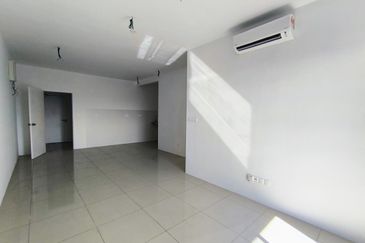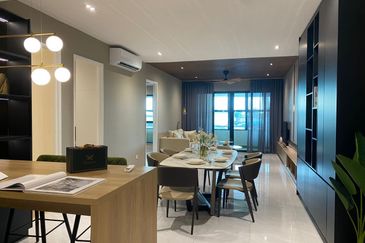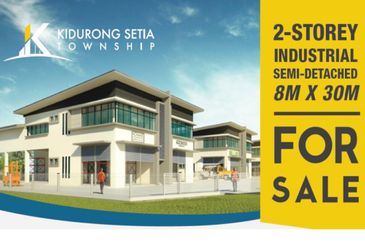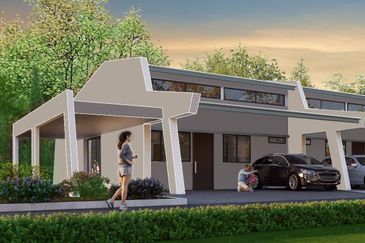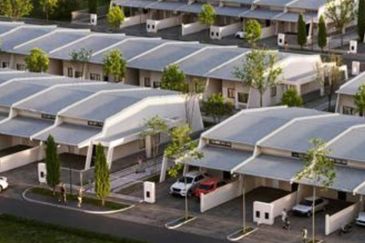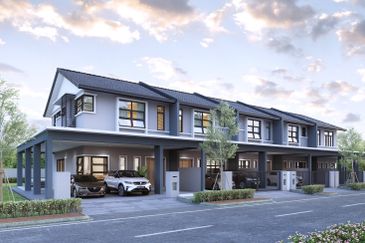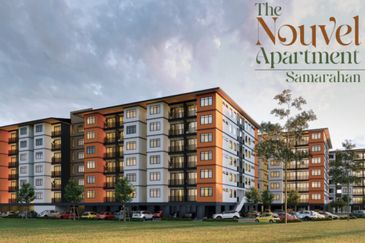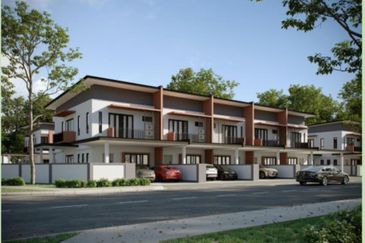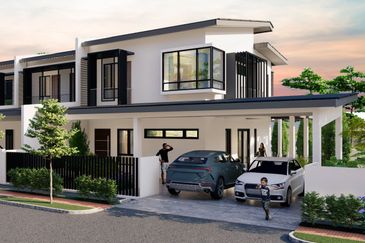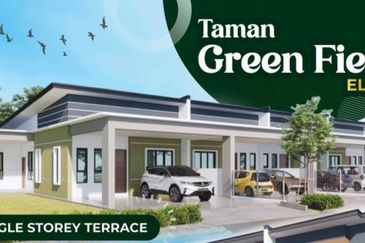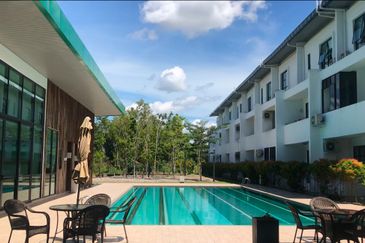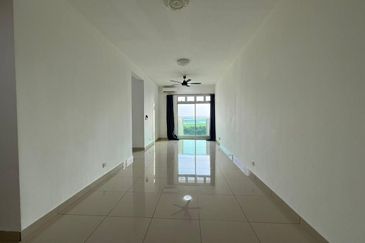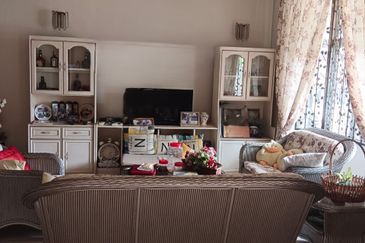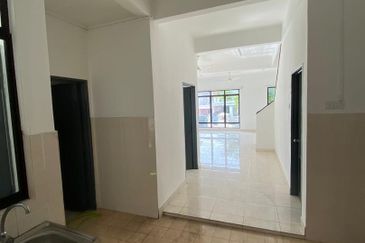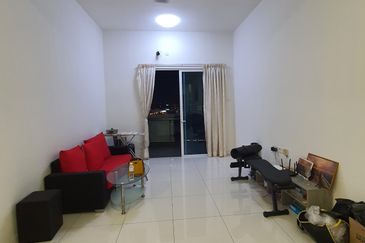Just two weeks ago, Khalid Samad was sworn in as Federal Territories (FT) Minister, but he is already feeling the heat as a profuse number of unresolved issues await his decision and instructions.
“I have lost count of how many events or meetings I have attended over the past two weeks,” says the frank and affable Shah Alam MP in a 30-minute interview with EdgeProp.my.
“Yes, it’s tiring, but this is what we [ministers] need to do.”
The 61-year old reveals that he could only catch an average of four hours of sleep every night since becoming minister. There is “so much to do” as he endeavours to learn the ropes of his role, in overseeing the management and administration of the three federal territories of Kuala Lumpur, Putrajaya and Labuan. There is also the urban wellbeing portfolio, which has recently been added.
The FT minister’s position was considered a hot seat by many, as there are a number of perplexing issues plaguing the capital city of Kuala Lumpur, all clamouring for the new minister’s attention.
Among the issues were some controversial land deals and property developments. These will definitely be at the top of his to-do list.
Regarding the dubious land deals, which included the 64 deals that are under investigations by the Malaysian Anti-Corruption Commission (MACC), Khalid has repeatedly said he is in no position to comment, due to ongoing investigations. Nevertheless, he has also made known his zero tolerance of any bad practice in local council administrations.
“I can’t comment on the individual land deal, or whether which one is okay and which one is not, as I have not looked into the details myself. We will give our full support to the MACC and make sure that if there is any misuse of power or illegal [practice], there will be no cover-up,” says the minister at his service centre in Shah Alam, Selangor.
Khalid, a civil engineer with a degree in Fuel and Energy Engineering from Leeds University, UK, stresses that there is an urgent need to gazette the Kuala Lumpur Masterplan 2020, while new city plans and measures have to be introduced to prevent a repeat of what happened to the previous plans.
“This is our biggest challenge — to free the civil service from corrupt leaders or practices … and achieve our vision of building a clean and good government for the people, to have a more accountable and responsive government,” says the communications director of Parti Amanah Negara, a component party of the Pakatan Harapan coalition.
Here are more excerpts from the interview.
Were you surprised at being appointed the FT Minister?
Yes, I am [surprised with the appointment] and I did ask Tun Mahathir the reasons for choosing me.
I’m an experienced engineer in engineering work. As one of the candidates in the cabinet, it should perhaps be a job related with Ministry of Works. But why FT Minister? I don’t even stay in the Federal Territories.
Tun Mahathir just replied that if I take up the minister’s job and move in to Putrajaya, then I will be staying in a Federal Territory. I couldn’t say anything.
Since I was given the opportunity, I decided to give it a shot and see what I can do in order to achieve the vision of Pakatan Harapan — to build a clean and good government for the people.
Have you moved to Putrajaya?
I’m going through the process for the application, and looking for a house. Should be able to move in this month.
In future, I will be staying in Putrajaya for four to five days and coming back to my constituency (Shah Alam) every Friday or whenever I can to serve the rakyat. I think this is a normal practice for most ministers.
What do you hope to achieve within 100 days?
Firstly, I will need to learn the ropes of my responsibility and my area of authority within the ministry, as well as identify the changes that need to be undertaken, and the process to make the changes.
Secondly, we must have clear views and a roadmap of what we want to do. I don’t want to go in to change this and that, or sack people. Whatever we do is with a long-term plan, rather than just a knee-jerk response to show that we are here.
Thirdly, I want to get all the civil servants within the power structure, to be with me in the agenda of change, to help me in bringing us in the right direction. It’s important for me to gain their support.
Other than that, public feedback on specific problems such as questionable developments in residential areas will need to be addressed urgently, especially for the approved projects that haven’t started construction.
For the projects which do not conform to the by-laws or SOPs (standard operating procedures) but have been approved, I will try to identify and look into them in my first three months. If there is any chance that the decision could be reversed, I will do so.
Do we need a new set of SOPs or any way to prevent such controversial government land deals or projects in future?
The SOP is already there but the question is whether they are being followed.
I believe there is a need for us to restructure the organisation within the ministry and Kuala Lumpur City Hall (DBKL).
In the past, DBKL did not give much room for the involvement of electoral representatives, especially in the decision-making process. There’s not much accountability and very little transparency as the mayor could make any decision and nobody could say anything.
In the decision-making process, there are no checks and balances. What happened was the MPs will make a lot of noise and they will be treated as opposition. They were not given access to any information which is necessary for them to fulfil their responsibility as government watchdogs on behalf of the public.
For Kuala Lumpur, I am restructuring the overall structure and I wish to introduce a new council which consists of all Kuala Lumpur MPs and Datuk Bandar (KL mayor) together with his senior officers to discuss and debate all the issues before making any decision. In this context, I will facilitate the process and chair the council meeting.
Currently, there is no such structure where the mayor is answerable to the MPs in the decision-making process. This is something that is necessary in order to ensure the best decision is made, a decision that takes public interest as the main consideration in every matter.
This Friday (July 20), we are going to have a trial run of the council meeting from 9am to 12pm. We have invited all the MPs to come and they are requested to submit the top three major problems faced by their areas by (last) Tuesday to DBKL, for the latter to prepare related information for this Friday’s meeting.
This council meeting will be convened every month or every two months, depending on necessity. If this requires some form of law or guidelines to implement, I will undertake the process.
I think it is important to institutionalise the position of the MPs to ensure better public involvement.
Through this council meeting, I hope to achieve the objective of greater transparency and accountability of the local council. We will also implement similar council meetings if there’s a need, for Putrajaya or Labuan.
However, I have to remind everyone that this is something of a process [that requires some time]. It’s not something I could do overnight, but something I’m going to start this Friday.
How can we improve the local government’s transparency and accountability?
Another thing that we need to do is to gazette the Draft KL City Plan 2020 (DKLCP 2020) by the end of the year, even though it will be 2020 in another two years. With the plan gazetted, it will help to prevent any land deal or development approval that contravenes the plan, to be granted.
If not mistaken, the plan has been available since 2012 but it wasn’t gazetted. This has given a lot of freedom to the [people in] power to make decisions that only benefit certain groups of people.
We are looking to formalise the decision to gazette the plan in the next council meeting. With this, there will be less room for manipulation.
As for the land deals or developments that have been granted approval prior to the gazette, we will review these, case by case.
Does it mean some cannot be undone?
Yes, some cases can’t be undone but some cases can be undone at a cost. We will evaluate the reports on a case-by-case basis.
Besides DKLCP 2020, there will be another KL Plan 2030, which will be approved and made available to the public after 2020. Once the plan is gazetted, we will tie up the issues of land use approval and hopefully this will allow us greater control in land deals or development approvals in the future.
What is your vision for Kuala Lumpur?
On this matter, we need to discuss with various planning bodies such as architects and learn from other countries, such as South America, on ways to green the concrete structures or ways to grow the plants in concrete columns.
Beside this, public transportation is another issue. [There is a need] to create areas only meant for pedestrians and bicycles as well as implementing a “no car day” in the city centre.
Current city public transportation needs to be improved with solutions such as the usage of trams or electric vehicles — these are things we need to study.
We are aware of the problems [over-development] faced by Kuala Lumpur and it is not unique to itself as these are also problems faced by other cities.
I don’t think this is an irreversible situation. It’s something that we can handle. We will study the matter and come up with concrete solutions. We have to learn from others or use our own creativity to find solutions to improve the living quality of urbanites.
How about Labuan?
Among the three Wilayah, Labuan seems to be side-lined but I think Labuan has lots of growth potential.
On this, we will ensure that the Labuan Corporation (Perbadanan Labuan) has a clear roadmap or plan on how to achieve economic prosperity for the people within the island.
This is important as it will determine whether the building of a bridge connecting Labuan island and mainland Sabah via Menumbok will become a reality.
There are people who don’t understand my approach. If there’s no plan showing Labuan’s economic growth, nobody will see the potential of the island, thus making it difficult to justify the plan to build the bridge.
I believe in Labuan’s potential. The infrastructure is there. We need to make Labuan prosper in terms of fisheries, local industries, ship building, oil & gas and tourism. These will make the decision to build the bridge a natural progression.
I want to handle it in that manner rather than politicising it as an agenda to fish votes.

This story first appeared in the EdgeProp.my pullout on July 20, 2018. Download EdgeProp.my pullout here for free.
TOP PICKS BY EDGEPROP
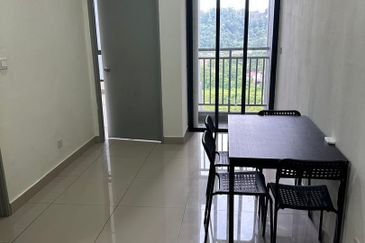
Ayuman Suites Serviced Residence
Gombak, Selangor
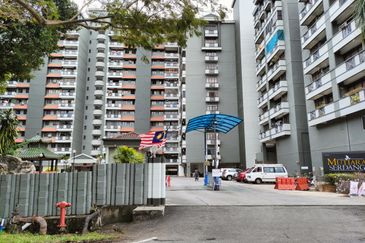
Turf View Apartment (Mutiara Serdang)
Seri Kembangan, Selangor
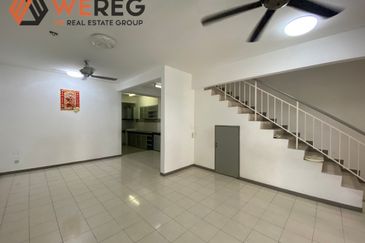
Setia Indah
Setia Alam/Alam Nusantara, Selangor




